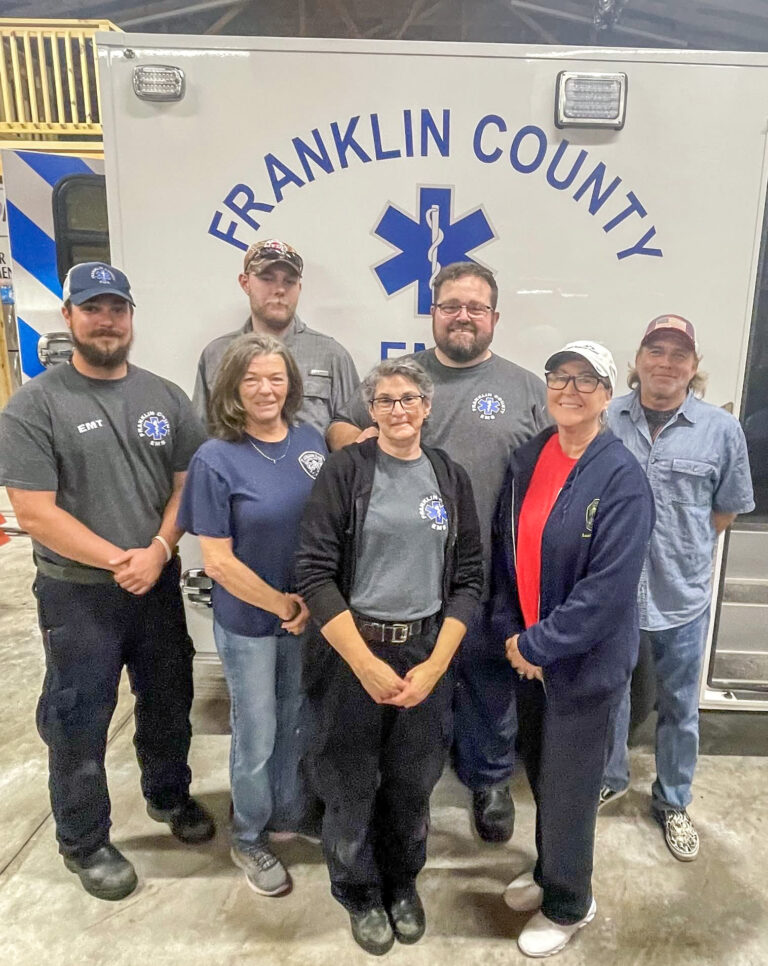Legacy Post Disclaimer
This is a #Legacy post imported from The Apalachicola Time’s previous platform. If you’re experiencing issues with this article, please email us at news@nevespublishing.com.
Seiden trial moved to December
The trial of two defendants accused in the bludgeoning death of a South Florida woman at an Eastpoint motel in April 2018 won’t take place until December at the earliest.
On Tuesday, March 1, Circuit Judge Jonathan Sjostrom granted a motion filed by the attorney for co-defendant Zachary Abell to move the trial from the end of March to Dec. 7 through 16.
Attorneys for co-defendant Christina Araujo did not object to the motion, and joined in agreeing with the “basis and necessity” for moving the trial.
“This motion is made in good faith and not solely for the purposes of delay,” wrote Abell’s Tallahassee criminal defense attorney Alex Morris, in his Feb. 25 motion, filed four days after Sjostrom rejected Araujo’s attorneys’ request to move the trial out of Franklin County.
Morris wrote that he conferred with Assistant State Attorney Jarred Patterson, and that the prosecutor “generally objects” to the postponement.
“But (he) acknowledges that the reasons stated for the continuance are valid and the state does not have reason to believe the defense is not entitled to the requested relief,” Morris wrote.
Patterson did not file a motion in opposition to the request for the eight-month delay.
The reason Morris cited for the December trial date was because an earlier alternative possible date, in September/October, would conflict with the Jewish High Holy Day of Yom Kippur.
“The case involves witnesses from south Florida who will have a conflict, and one of the lawyers is calendared to be out of the country,” Morris wrote. “The second alternative was to move the case into 2023 and the parties agree that this is too long of a postponement coupled with the fact that the court will be disinclined to do so.”
Araujo, 42, of Loxahatchee, and Abell, 34, of North Miami Beach, were initially charged with second-degree homicide for killing Seiden, a traveling companion, at an Eastpoint motel on or about April 23, 2018, and then dumping her body in a cul-de-sac at a vacant subdivision off U.S. 98.
Within days, the two were picked up in South Florida by the Broward County Sheriff’s Office, extradited to the Franklin County Jail and have been held without bond ever since.
In Sept. 2021, an 18-member grand jury stiffened the charges to first-degree murder, which carries with it possible imposition of the death penalty.
In outlining the timeline of the case, Morris wrote that the public defender’s office was initially appointed to represent Abell. “He was represented by at least three different lawyers during the time of their representation,” Morris wrote in his motion, noting the public defender’s office withdrew from the case in June 2019.
The Office of Regional Conflict Counsel then was appointed to represent Abell but withdrew Jan. 20, 2021, during which time three different lawyers represented Abell. Morris was then court-appointed to represent Abell.
Morris wrote that prior to his appointment, “the discovery process was active and ongoing. There is a reality that the COVID-19 pandemic has had an impact and continues to have an impact on the preparation of the case. At this point, the pandemic is not a reason or a basis for a continuance. However, it is a consideration as it relates to impediments that have existed in the preparation of the case for trial.
“The discovery materials in this case are voluminous and the case is anything but ‘local’,” the defense attorney argued in his motion. “Witnesses and evidence are in vastly different geographical locations.”
Morris wrote that witnesses and evidence exist in as many as five separate locations, including south Florida “related to the circumstances of their departure;” Dallas, Texas, “where they stayed for a few days before traveling to New Orleans and Pensacola;” Eastpoint, where “the death of the victim… is alleged to have occurred;” and Davie, “where the defendants are alleged to have driven to” following Seiden’s death.
The motion goes on to say that within Franklin County, there are two crime scenes, both Sportsman’s Lodge, where the homicide is alleged to have occurred, and the other where Seiden’s body was recovered.
“Franklin County Sheriff’s Department and agents from the Tallahassee Regional Operations Center of the Florida Department of Law Enforcement were primarily responsible for the investigation and the processing of the crime scene,” it reads. “However, agents from the Miami Regional Operations Center and Broward Field Office of FDLE were responsible for conducting interviews of the defendants and witnesses in south Florida as well as collecting items of evidence.”
“There are experts from Tampa, Tallahassee, and Ft. Lauderdale. There are lay witnesses and informants scattered throughout Florida, Texas, New York, and California,” reads Morris’ motion.
The defense attorney said he sat down with Patterson for over six hours “to meticulously go through items that the defense was and was not in possession of and/or aware of to make certain there are no surprises or omissions.
“There were/are literally thousands of pages of phone data, medical records, investigative reports, and items of evidence that proved to be new information,” he said. “This was the result of discovery materials not being forwarded between (and by) former counsels.”
Morris’ motion provides clues as to aspects of the upcoming defense by noting that evidence will include text messages from multiple witnesses to and from Seiden and the two defendants.
“These messages provide a chronology of circumstances related to who was being injured by whom and who was potentially fearful of whom and why,” wrote Morris.
He also wrote that forensic analysis has been done on four different phones and one home security recording device.
“There is one readable ‘phone dump,’ one unreadable ‘phone dump’ because of the omission of software to open it and analyze it, two phones that have not been analyzed and a home security device that was analyzed with the likelihood that the analysis served to alter or destroy important data (confession, statement against interest and/or statement by a party opponent),” Morris wrote. “The parties are making efforts to address the technological issues associated with the data and forensic analysis issues.”
In his closing, Morris referred to “a circumstance that has arisen calling into question whether a witness has been improperly influenced beyond what one would normally expect in trial work.”
He did not elaborate, noting only that “the parties are working together on this matter and will engage the court’s assistance where required to resolve this issue.
“This case is uniquely complex with more ‘moving parts’ and challenges that are above and beyond what a seasoned trial lawyer would typically regard as difficult,” he wrote.



Meet the Editor
David Adlerstein, The Apalachicola Times’ digital editor, started with the news outlet in January 2002 as a reporter.
Prior to then, David Adlerstein began as a newspaperman with a small Boston weekly, after graduating magna cum laude from Brandeis University in Waltham, Massachusetts. He later edited the weekly Bellville Times, and as business reporter for the daily Marion Star, both not far from his hometown of Columbus, Ohio.
In 1995, he moved to South Florida, and worked as a business reporter and editor of Medical Business newspaper. In Jan. 2002, he began with the Apalachicola Times, first as reporter and later as editor, and in Oct. 2020, also began editing the Port St. Joe Star.